There’s a quiet assumption behind the wheel of most electric vehicles, that slower is always better. Better for range, for efficiency, for nerves. And while that’s still largely true, a growing body of data from real-world EV owners suggests that the time-versus-speed equation isn’t as simple as it used to be.
Can Driving Faster and Ultra-Fast Charging Shorten EV Road Trips?
With ultra-fast charging and evolving infrastructure, there are cases, not recommendations, where traveling at higher speeds may result in shorter overall trip times. This isn’t to promote speeding; it’s about exploring how electrification is subtly changing the way long-distance travel works.
One Redditor summed it up beautifully:
“When the topic of range comes up, there's always discussion about driving 70 vs. 80 and how much further you'll be able to drive on a single charge. And it's true, the efficiency drop is non-linear, so 70 to 75 loses more range than 65 to 70.
However, what I think gets lost in this conversation is that the thing most people care about on road trips is not the efficiency or raw number of stops, but rather time to destination. DCFC is becoming increasingly more common, and as long as you don't have to go out of your way and have decent charging speeds, you'll save a significant amount of time by going 80 vs trying to hypermile to avoid stopping.
To give an example, let's say you are driving a vehicle that charges at 100 kW on average, and let's take the two situations of chilling at 65 mph vs. speeding at 80 mph, over the course of a 500 mile trip. I'll be very generous to the slowpoke and say that at 65 mph you'll get 4 miles/kWh, while at 80 you only get 2 miles/kWh, and you start by leaving home at 0% (just so we don't have to deduct an arbitrary amount of charging time from both). Putting this into table form:
Even if you add in a flat 5 minutes per stop to get to the charging spot and get payment sorted, it's still clear that speeding beats going slow. Plus, these numbers are exaggerated already in favor of the slower speed, and it still loses (my personal numbers are 3.4 mi/kWh at 65 mph and ~2.5 mi/kwh at 80, at least in good weather). There's a bit of calculus involved in determining the optimum driving speed since the specific relationship between your speed and efficiency is key to the calculation, but in practically every situation I could plug into that calculation above, driving 80 came out ahead on time.
Now, you will pay more, but I'd gladly pay an extra $20 to get to my destination an hour faster.
Edit: Fixed the table. It was mixed up originally, and made the exact opposite point of what I was trying to say. Sorry!
Edit2: Since it apparently needs to be said, I do not recommend literally driving 80 mph. If you can save time driving 80, you can also save time at 75 or 70, even in the worst-case scenario I outlined of excessive efficiency loss and relatively slow charging speeds.
Edit3: To give an actual scenario from reality, here are the stats for my EV6 from a driving the same speed for like ~50 miles at a time on a recent roadtrip. I rounded a few numbers, but this is very close to "real data". Left at near 100%, so I'm subtracting the charge time. Total trip miles was 400, and charge speed was something like 180 kW. I'm not going to factor in the starting charge, but you can subtract ~30 minutes from the charge and total times if you want to be pedantic.
Advertising
So in my situation, there's almost an hour of hypothetical savings, at the cost of 50 kWh, which is about $20. Again, I'm not recommending you drive 80 in general, just that you don't need to drive slower just because it's an EV.” - chilidoggo, Reddit
That quote comes from a Reddit user who recently broke down their road trip experience in a Kia EV6. At 80 mph, the trip took 5.9 hours and consumed 167 kWh. At 65 mph, it stretched to 6.75 hours but only used 118 kWh. The faster pace shaved off nearly an hour of travel time but came with a roughly $20 premium in electricity.
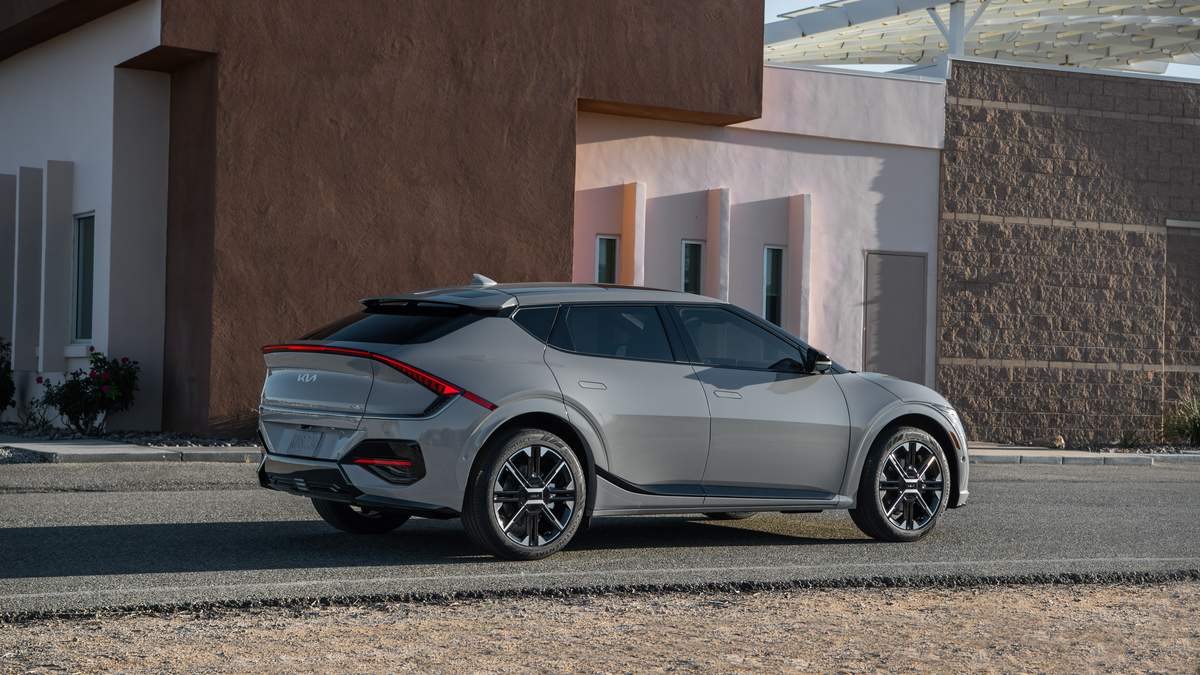
It’s not a definitive argument for driving faster, it’s a situational observation. In vehicles with fast charging capability, the extra time spent recharging might be offset by higher cruising speeds, depending on conditions.
Real-World Infrastructure Hurdles for EV Fast Charging Reliability
- High-power DC fast chargers (150–400 miles/hr equivalent) can typically refill an EV from 10 % to 80 % in about 30–60 minutes. Most models top up roughly 100 miles in 30–35 minutes
- EV road-trippers often schedule charging stops every ~3 hours (or ~200–250 miles) to match battery absorption rates and driver fatigue patterns.
- For efficient pit stops, drivers tend to charge for about 15–25 minutes, roughly the time needed for restroom breaks, snacks, stretching, and topping off charge curves .
- If using primarily Level 2 chargers or stopping for a full meal, pauses can extend to 30 minutes (quick meals) or 45–60 minutes (sit-down restaurants), partially depending on slower charging rates.
Supporting this idea is a detailed breakdown of the Ford F-150 Lightning’s performance over a 1,000-mile trip. At 75 mph, the Lightning made it in 16.58 hours with four charging stops.
At 70 mph, it took just five minutes longer, but required only three stops. Here, again, we see a tradeoff. Slightly lower speeds can reduce the number of charging breaks without adding much to the clock. But each vehicle is different, and as one commenter smartly noted,
“Each vehicle will have its own optimal speed.”
It’s not about speed for speed’s sake; it’s about understanding how your EV behaves on long hauls.
Why the Kia EV6’s 800V Architecture Revolutionizes Long-Distance Travel
Still, there are real-world variables that complicate these theoretical gains. As u/s6511 pointed out,
“There’s a bit of risk with an EV charger being in use, partly operational, or not operational.”
Even Tesla owners have occasionally found themselves in difficult situations when charging stations were unavailable or under repair.
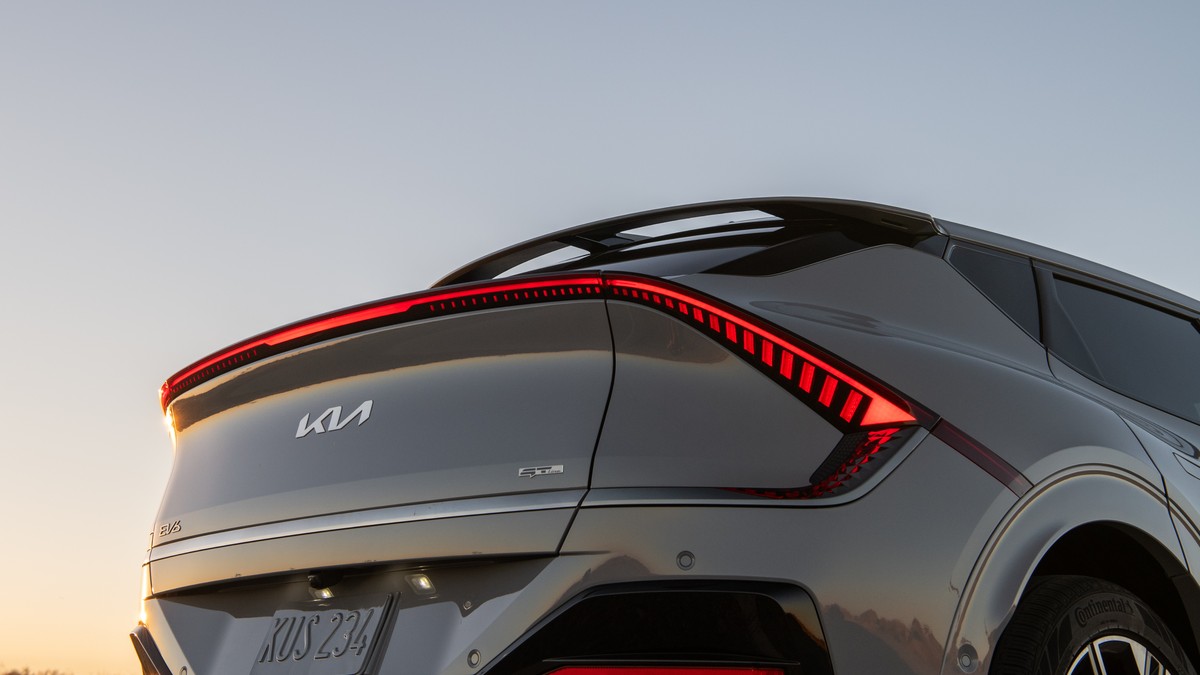
One user recalled being stranded because the only accessible Supercharger in range was offline, leaving them to watch a working charger they couldn’t use. These hiccups remind us that even if a faster pace works on paper, execution depends heavily on infrastructure reliability.
Key EV Charging Stop Strategies for Efficient Road Trips
In that context, the Kia EV6 stands out. It’s one of the few EVs that can make this time-vs-speed discussion meaningful thanks to its 800-volt architecture and high-speed charging capability, often topping 200 kW in ideal conditions. Kia claims it can charge from 10% to 80% in around 18 minutes, and independent testing has shown that this performance is consistent. With that kind of speed, the penalty for stopping becomes less of a burden, and trip planning becomes more flexible.
That said, the cost of efficiency is still real. The Reddit user’s faster 80 mph trip burned through 50 kWh more than the 65 mph run in most public charging networks, which translates to about $20. For some, that’s an easy trade-off for an hour saved.
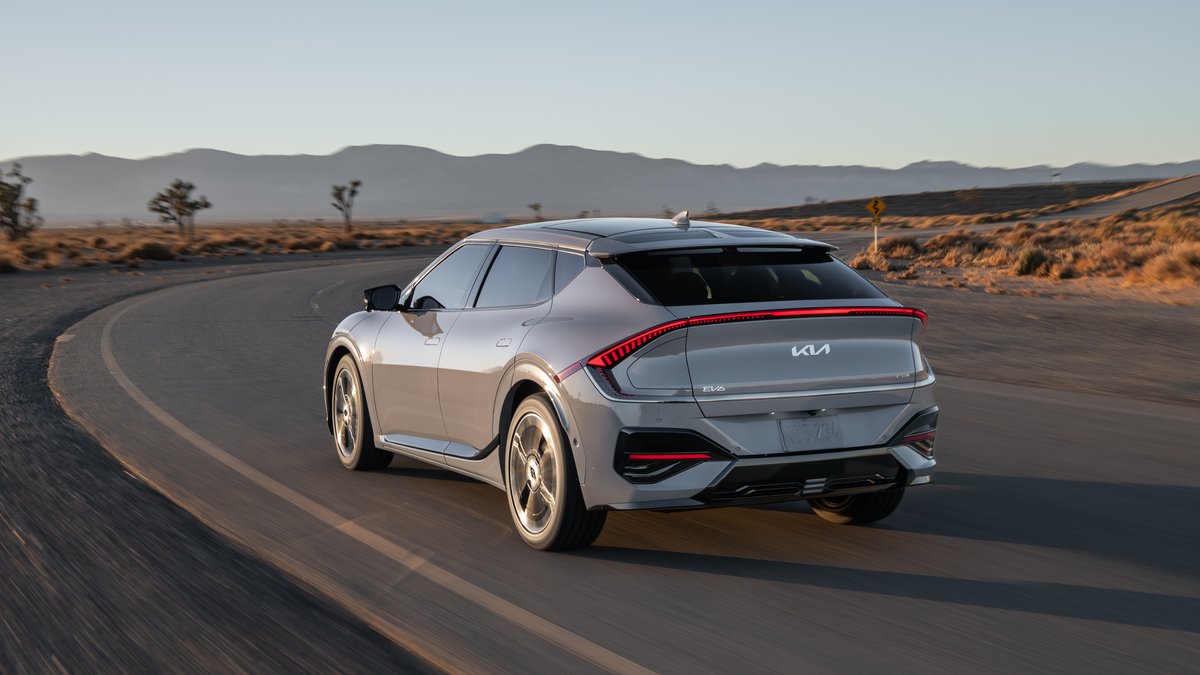
For others, particularly those with tighter budgets or access to cheaper home charging, it might not be worth it. The key takeaway isn’t that one approach is better, it’s that you now have the option to tailor your strategy based on the capabilities of your vehicle and your travel goals.
2025 Kia EV6 Specs: Battery, Price, and Performance Highlights
- The refreshed 2025 EV6 offers upgraded battery options, 63 kWh for standard models and up to 84 kWh for long-range trims. Kia claims the rear‑wheel-drive long‑range version now achieves around 319 miles per charge
- U.S. prices start around $42,900 for the base Light RWD, rising to approximately $63,800 for the GT performance variant, plus a destination fee (~$1,475)
- Built on the E‑GMP architecture (shared with the Ioniq 5), the EV6 supports DC fast-charging at up to 240 kW and electric outputs ranging from ~125 kW in entry trims to as much as 430 kW (approximately 576 hp) in the GT
- Its main rivals include the Hyundai Ioniq 5, Chevy Bolt EUV, Ford Mustang Mach‑E, Tesla Model Y, Volkswagen ID 4, and luxury models like the Volvo EX40/C40 and Mercedes EQA. The EV6 often stands out for superior charge speed, range, and driving dynamics
But let’s not get ahead of ourselves. As mmiggs commented, even under ideal conditions, the difference in total travel time can be modest, sometimes just 12 minutes over a full day of driving.
And as they also noted, EVs still trail gas vehicles when it comes to overall trip speed, especially when infrastructure is inconsistent. In one example, an EV driver arrived more than two hours behind their sibling driving an ICE vehicle over the same route.
The emerging data suggests that traditional driving habits may need some rethinking in the EV era. Slower speeds may preserve range, but they don’t always preserve time. And for vehicles like the Kia EV6, with a strong charging curve and real-world efficiency, it may sometimes be more practical, not necessarily smarter or safer, to drive at moderate highway speeds and take advantage of rapid charging along the way.
Will this change the way you drive your EV? At what speeds is your car most efficient?
Let us know in the comments below.
Image Sources: Kia Newsroom
Noah Washington is an automotive journalist based in Atlanta, Georgia. He enjoys covering the latest news in the automotive industry and conducting reviews on the latest cars. He has been in the automotive industry since 15 years old and has been featured in prominent automotive news sites. You can reach him on X and LinkedIn for tips and to follow his automotive coverage.


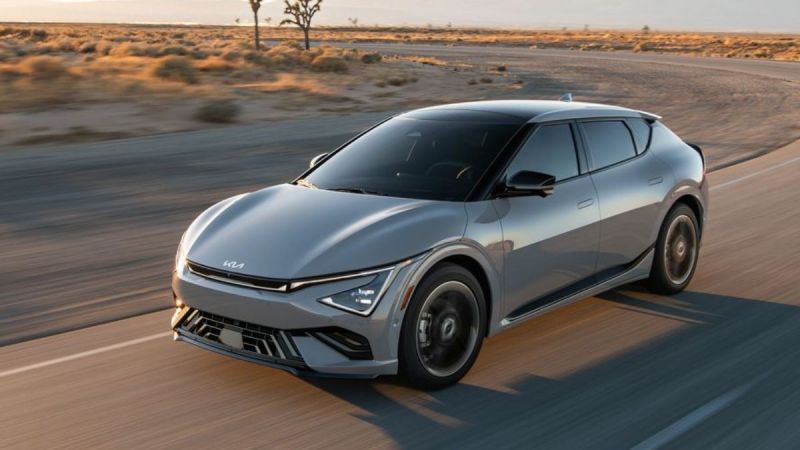




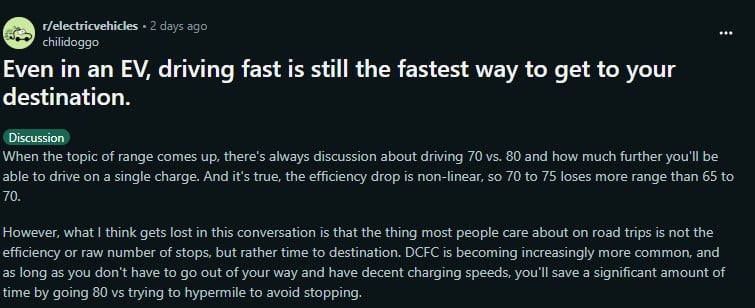



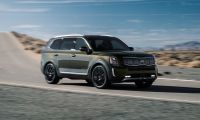
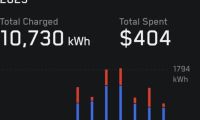
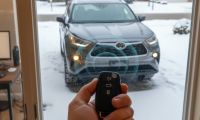

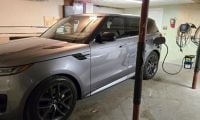
Comments
If I can skip a stop by…
Permalink
If I can skip a stop by driving slower, I get there faster AND cheaper. I often drive faster when I can make it home, or to other home charging options as the "$20" difference turns into a $2 difference.
Totally agree! it’s all…
Permalink
In reply to If I can skip a stop by… by John Fischer (not verified)
Totally agree! it’s all about finding that sweet spot for time, cost, and convenience. Love how you’re thinking it through based on your charging options.
Useless article. The same…
Permalink
Useless article. The same principle of going 80 vs 65 in an ice vehicle or whatever vehicle is going to get you there faster duh!!!!
not so. It's not intuitive,…
Permalink
In reply to Useless article. The same… by Michael Spencer (not verified)
not so. It's not intuitive, but EV energy consumption is more impacted by drag than ICE vehicles. It takes a long video with lots of science to explain it.
That's not really a surprise…
Permalink
That's not really a surprise. General advice has always been drive slow if you have a slow charging car. If you have a fast charging car drive fast, you can make up that lost 20 miles of range in 3 or 4 minutes.
Exactly! With fast charging,…
Permalink
In reply to That's not really a surprise… by Bob F (not verified)
Exactly! With fast charging, a quicker pace can actually make more sense overall. It’s all about knowing your car and planning smart. Appreciate your comment!
It also depends on Model and…
Permalink
It also depends on Model and gearing. The AWD Teslas for example are geared differently front to back, so at lower speeds it prefers the motor with higher gearing (numerically), and at high speeds the one with lower gearing. So you may find that it's more efficient at 70mph than it is at 65mph.
Drivetrain setup definitely…
Permalink
In reply to It also depends on Model and… by Richter12x2 (not verified)
Drivetrain setup definitely plays a role, and some EVs really do have that efficiency sweet spot at higher speeds. Thanks for adding that insight!
It depends on where you live…
Permalink
It depends on where you live and your budget. In Europe, those 50 kWh might work out at $40 or more, depending on the charging network used.
If the budget allows, $40 might be immaterial and you go as fast as you can legally go. Fines negate any sort of savings.
Absolutely! location and…
Permalink
In reply to It depends on where you live… by Embalmer (not verified)
Absolutely! location and charging costs make a big difference. For some, time matters more than a few extra bucks.
Do you think pineapple is a…
Permalink
Do you think pineapple is a good pizza topping?
Personally yes. I mean, it…
Permalink
In reply to Do you think pineapple is a… by Mike (not verified)
Personally yes. I mean, it is a pie 🤷
Why does it seem this correspondent has the knowledge and behaviorisms of a teenager?
I once drove for 1 hour at…
Permalink
I once drove for 1 hour at 65 mph. The next day I drove for 1 hour at 85 mph. Would you believe I drove 30 miles further the second day?!?!
This article is a steaming pile...
I could believe twenty miles…
Permalink
In reply to I once drove for 1 hour at… by Josh (not verified)
I could believe twenty miles further. Thirty, not so much.
Twenty sounds about right,…
Permalink
In reply to I could believe twenty miles… by Steve (not verified)
Twenty sounds about right, but thirty’s pushing it! Always fun seeing how speed really affects distance and time. Thanks for jumping in!
Might want to double check…
Permalink
In reply to I once drove for 1 hour at… by Josh (not verified)
Might want to double check your math professor.
headwind and tailwind speeds…
Permalink
In reply to I once drove for 1 hour at… by Josh (not verified)
headwind and tailwind speeds each day?
Conditions were pretty calm…
Permalink
In reply to headwind and tailwind speeds… by Pat Hub (not verified)
Conditions were pretty calm both days no major headwinds or tailwinds to skew the results.
My 2023 EV6 RWD treats me…
Permalink
My 2023 EV6 RWD treats me well..today I went drove over 20 miles with some highway, some I town and drove over 20 miles on 11 miles of range after charging the day before with 355 miles of charged range at home with my hardwired Emporia 48 volt charger. Weather getting warmer finally here in NE CT so 65-70° constant temps will get me 360-388 miles of range for the summer.
That’s awesome to hear!…
Permalink
In reply to My 2023 EV6 RWD treats me… by Bobo (not verified)
That’s awesome to hear! Sounds like your EV6 is dialed in and performing great especially with those warm temps helping out. Thanks for sharing your experience!
You risk a speeding ticket,…
Permalink
You risk a speeding ticket, that will cost $500, and insurance will raise rates. It could cost a lot more than $20.
Speeding can come with a…
Permalink
In reply to You risk a speeding ticket,… by Bill (not verified)
Speeding can come with a hefty price beyond just energy use. Definitely something to weigh when deciding how fast to go. Appreciate the reminder!
I drove 65 instead of 75 …
Permalink
I drove 65 instead of 75 (legal limit) for a 320 mile round trip. (Only half the trip allowed 75 legally) I avoided stopping for any charging. I charged when I got home during discounted, $0.07 per KWhr rate time. I saved time and money. I could not have made the trip at 75 without stopping, because my wife tried it 2 weeks prior. She sat at a DC charger for 30 minutes.
So it depends on the distance. If you can avoid stopping for a charge altogether, then save time and money by driving slower. Charge cheap overnight and be ready for the next trip!
Exactly! Smart planning and…
Permalink
In reply to I drove 65 instead of 75 … by Ken (not verified)
Exactly! Smart planning and off-peak charging can make a big difference. Great example of how slowing down a bit can pay off. Thanks for sharing your experience man!
Driving faster gets you…
Permalink
Driving faster gets you there sooner. Whoda thunk it? Don't forget the higher potential for a serious injury or fatality at higher speeds.
speed comes with trade-offs,…
Permalink
In reply to Driving faster gets you… by Dylan (not verified)
speed comes with trade-offs, including safety. It’s always a balance between time, efficiency, and staying safe. Thanks for pointing that out!
Kind of insane to think that…
Permalink
Kind of insane to think that owning an EV is mostly about making sacrifices....the owner saved an hour but now lost $20 to charging. This is exactly the problem. Fast chargers are too expensive.
Fast charging costs can add…
Permalink
In reply to Kind of insane to think that… by Nyankana (not verified)
Fast charging costs can add up quickly. Hopefully as infrastructure improves, we’ll see more affordable and accessible options.
If you have to stop, surely…
Permalink
If you have to stop, surely the efficiency ceases to be so critical. Where you make savings is when driving more efficiently, compared to going more quickly means that you *don't* need to stop.
On several occasions, I've managed to get a trip done at 60, beating a colleague who went at more than 80. All because I've not had to stop at all.
that’s the key! If driving…
Permalink
In reply to If you have to stop, surely… by Adam (not verified)
that’s the key! If driving efficiently helps you skip a charging stop altogether, you’re saving both time and money. Thanks for sharing your real-world example!
Pagination